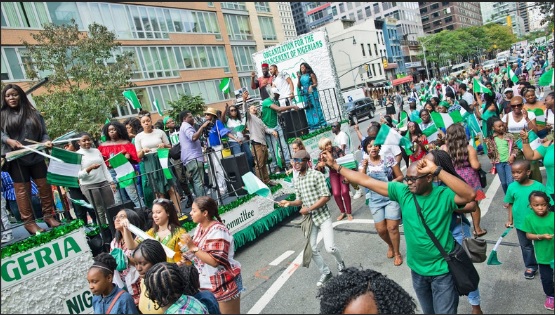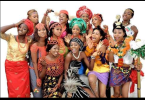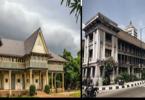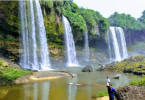It is strongly claimed that virtually every nation across the world is occupied by Nigerians (or individuals of Nigerian descent). Nigerians are adventurous travelers. They have become traders, students and professionals; immensely contributing to the wealth of other nations, and generally adapting quickly to foreign environments. This is a quick summary of the Nigerian diaspora. Additionally, the Nigerian diaspora is noted to be one of the largest immigrant populations around the world (though the exact number is not known).
The importance of the Nigerian diaspora to the country cannot be ignored. They have existed likely as far back as the start of the transatlantic African slave trade (between the 16th and 19th century). And the Nigerian diaspora have progressively wielded greater influence on the economies and societies of their various foreign settlements ever since. This has been made possible, in spite of the well-known challenges of racism.
How does the Nigerian Diaspora Benefit Modern Nigeria?
The Nigerian diaspora over many decades, are privileged to have gathered a huge wealth of resources. These resources include:
- their sheer numbers (manpower). They have offered physical support for national causes, and even embarked on protests in their sheer numbers.
- their skills, knowledge and experiences (gathered from exposure to specialized foreign education).
- their financial wealth (including cash and non-cash remittances from their work and trade) sent back to relatives and loved ones at the home front. They have alleviated the conditions of their poor dependents back home. They have also financed businesses, projects, education and debts, thus contributing to Nigeria’s economic growth.
- huge wealth of global multi-racial networks and connections with both Nigerians and Non-Nigerians. With such connections, they have been influencing foreign policies to help their home country.
The Challenges of the Nigerian Diaspora
Lack of A Nigerian Identity
The Nigerian diaspora is facing the problem of a non-existent Nigerian identity – one way or the other. It is clear that many Nigerian individuals and families in the diaspora strongly project their culture and norms while abroad. Projecting their cultural identities in foreign lands is a way of staying connected, and identifying with their homeland. Their dressing and mannerisms; native food; festivals and celebrations; promotion of Nigerian (and pan-African) music; use of local language amongst others, bear that evidence.
Along the line, there have existed occasional clashes of both cultural identities, and individual choices. Tribalism is still an issue, both home and abroad. The taint of criminal behavior – such as the effect of organized scam and fraud networks on foreigners (linked with Nigeria), makes it even worse. Criminal-minded individuals in the Nigerian diaspora have done much damage to the nation’s image. It is even worse when they have physical brawls and bloody clashes on foreign soil.
The lack of cultural unity and sense of brotherhood in some Nigerian diaspora communities is not seriously much hidden. There seems to be a reluctance towards cultural and social cooperation. In some others (especially where there are a large number of learned individuals), their sense of cooperation is highly commendable.
Trust Issues in Exploring Business Opportunities in Nigeria
It is widely acknowledged that Nigeria has an abundance of manpower and natural resources yet untapped. There are many business and profitability opportunities available to the Nigerian diaspora as well as foreign investors.
However, there are trust issues. Reports of family members and friends who abscond with, or unlawfully spend money entrusted into their hands by members of the Nigerian diaspora are rife. It has led to total or partial abandonment of such people by the wronged benefactor/entruster. Any other prospect of investing in Nigeria is dashed, for that matter.
Suggestions to Encourage Participation of the Nigerian Diaspora in Nigeria’s Economy
It would be expedient for the government to actively woo rich investors from among the Nigerian diaspora with incentives and favorable policies. The economic climate and national policies must be tailored to favor foreign businessmen, especially the Nigerian diaspora. That would encourage them to partner with the locals and set up businesses on Nigerian soil.
There is a necessity for the government to actively engage Nigerian diaspora communities through discussions and international meetups on a continuous basis. By doing so, the Nigerian government and indigenous people can benefit from their wealth of business insights, experience, technical expertise, and innovative technologies. This can go far to improve products and services available in the local market.
Additionally, the Nigerian diaspora – having an understanding of both Nigerian and foreign cultures and customs, will enable them bridge cultural gaps. They can foster improved transactions, negotiations, and relationships with both local and non-Nigerian investors.
There is no doubt the Nigerian diaspora have well-connected business and social networks within the global community. Via these networks, the Nigerian diaspora can serve as the mediator for easy market entry, and for the meeting of potential partners, suppliers, distributors, and customers. This is equally possible from both the Nigerian end, and that of the global business community.
Many Nigerian diasporans also have a good degree of trust and credibility within the local communities, and amongst foreign partners. This can help to build the needed trust with local (and foreign) stakeholders, regulatory bodies, and government agencies that can fast-track negotiations.








